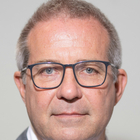Briefing Paper
Orchestration: an instrument for implementing the Sustainable Development Goals
Klingebiel, Stephan / Sebastian PauloBriefing Paper (14/2015)
Bonn: German Development Institute / Deutsches Institut für Entwicklungspolitik (DIE)
Dt. Ausg. u.d.T.:
<link record:tx_ttnews:tt_news:5967 internal-link>Orchestrierung: ein Instrument für die Umsetzung der Sustainable Development Goals
(Analysen und Stellungnahmen 6/2015)
At the same time, the conditions for global collective action have changed substantially. The international system is now more multipolar due to the rise of emerging powers. Important multilateral processes are stalled or advance only slowly. In contrast, transnational networks have become a central feature of global governance and allow actors from civil society, the private sector, ministries, agencies, cities and municipalities to assume a global role. Successful examples such as the C40 Cities, the Extractive Industries Transparency Initiative and the Global Vaccine Alliance (Gavi) demonstrate that such networks can make important contributions to global sustainable development. These networks do not always emerge on their own and must overcome obstacles to cooperation. In various areas of sustainable development, such as environmental, health and development policy, approaches to foster global networks already exist under the catchword "orchestration". Yet these efforts are still very piecemeal. Governments and international organisations should develop orchestration more systematically into an integral part of the instruments used to achieve the SDGs.
An orchestration instrument for the SDGs would initiate, support and shape global networks. In addition, the instrument could specifically promote networks that integrate actors from middle-income countries into new cooperation initiatives for global public goods. The instrument would have two different objectives: firstly, mobilising contributions to global sustainable development (financing, sharing and co-creation of knowledge, standard setting, etc.) and, secondly, improving conditions for international cooperation as a whole (e.g. by reducing fragmentation or improving linkages between domestic and global policy processes).
Government departments and international organisations from different policy areas could have a role in managing orchestration for the SDGs. In principle, development cooperation actors are in a position to play a leading role in getting such an instrument up and running. They have a number of relevant assets on which they can draw as orchestrators (financial resources, operational capacity, etc.). The orchestration of global networks might, however, stretch the existing limits of bi- and multilateral development cooperation (e.g. eligibility for official development assistance, the need to use certain implementation mechanisms).
Kontakt
Cornelia Hornschild
Koordinatorin Publikationen
E-Mail Cornelia.Hornschild@idos-research.de
Telefon +49 (0)228 94927-135
Fax +49 (0)228 94927-130
Alexandra Fante
Bibliothekarin/Open Access-Koordinatorin
E-Mail Alexandra.Fante@idos-research.de
Telefon +49 (0)228 94927-321
Fax +49 (0)228 94927-130



